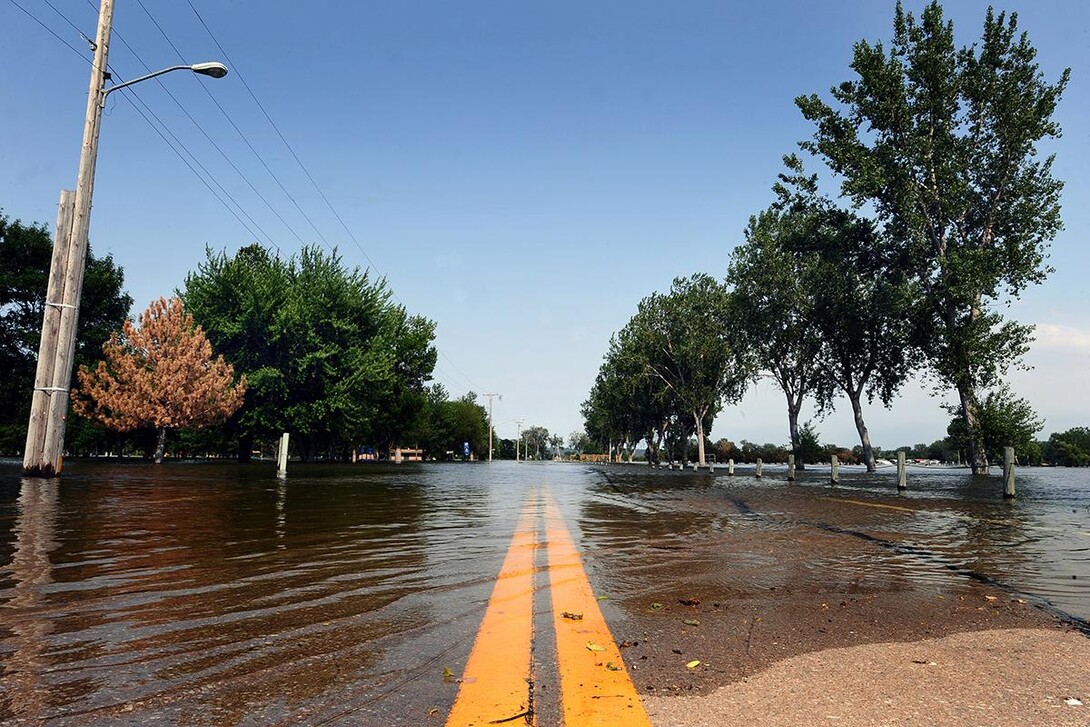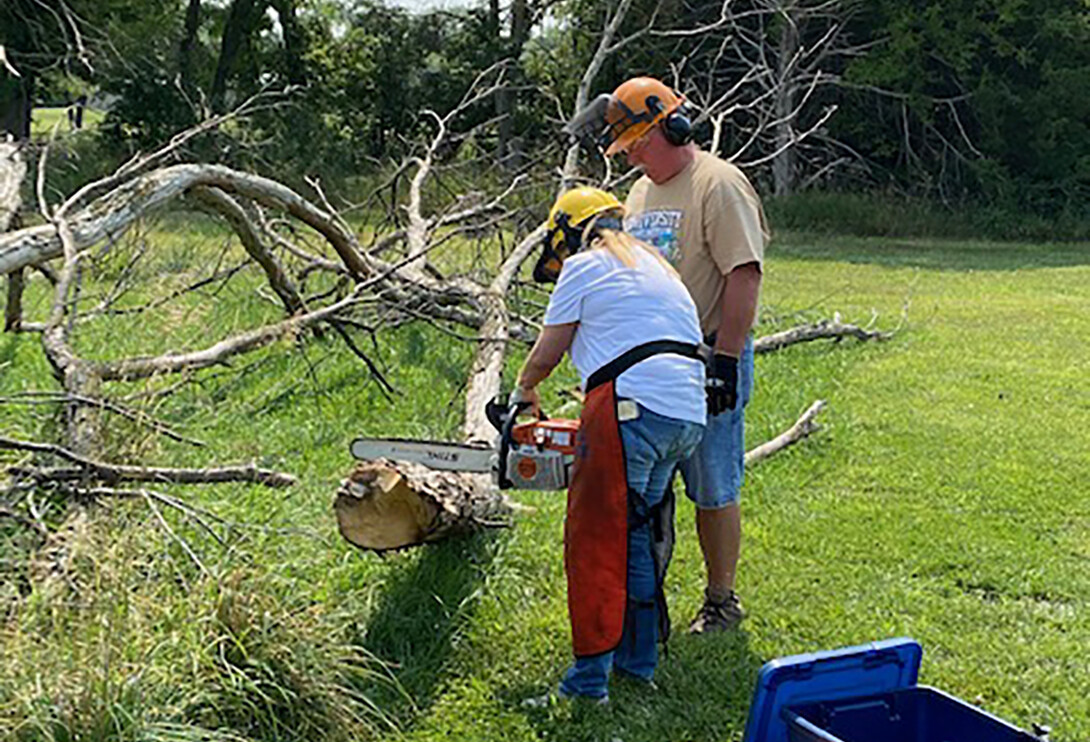
Becky Fausett was working in human resources at a college when she first felt the pull that has had her helping families after house fires, guiding people through COVID-19 vaccination clinics and going door to door after a flood.
Those were just some of the times she was called out as a volunteer serving on her local Community Emergency Response Team in Grand Island. She has been a CERT volunteer since she heard about the opportunity in 2014.
“I very quickly fell in love with the idea of being prepared to help my community,” Fausett said.
She and other volunteers from around the state took part in the Nebraska Citizen Corps Volunteer Preparedness Conference, Aug. 6-7, in Grand Island. Volunteers learned or got refreshers about chainsaw safety, how to correctly apply a tourniquet, options for radio communications and search-and-rescue strategies.
The conference, which included Medical Reserve Corps volunteers, was organized by the University of Nebraska Public Policy Center and hosted by the Nebraska Emergency Management Agency and its Nebraska Citizen Corps. Local partners were Jon Rosenlund, the emergency management director at the City of Grand Island, and Camp Augustine, the 160-acre Boy Scout facility at Doniphan.

The conference was canceled last year because of the pandemic.
This year’s more than two dozen attendees seemed happy to finally have the opportunity to meet other people and share the experience with them, said Elizabeth Gleason of the Public Policy Center.
“Zoom calls can only do so much,” she said.
Rosenlund said he enjoyed seeing a wide array of volunteers from throughout the state together again.
“It’s best to work with each other side by side,” he said.
The venue had advantages, including allowing the volunteers to use the Boy Scouts of America’s accredited program for learning to safely and correctly use a chainsaw. The camp also had some downed trees that needed cutting.
Wooded areas allowed for a search-and-rescue exercise using CPR manikins and, standing in for children, watermelons. The melons required more careful handling than the typically used sandbags, Rosenlund said — and they were a good snack afterward.
The training program was started in 1985 by the Los Angeles Fire Department and became a national program in 1993. Following the 9/11 terrorist attacks, interest grew in adopting a nationwide volunteer curriculum to support first responders when they request help. It is funded by grants from the Federal Emergency Management Agency.
Nebraska has 11 county or regional teams. Their work depends on local needs at any given time and how widespread an event is, Gleason said. Some local teams helped with coronavirus contact tracing, she said. Information on becoming a volunteer can be found here.
The program draws volunteers from different backgrounds. Rosenlund said his volunteers include a small business owner, a newspaper press operator, a city water department official, a middle school paraprofessional, ham radio operators and people with military and public safety backgrounds.
Rosenlund said he started his Teen CERT program in hopes participants would explore careers in law enforcement, fire and EMT service, 911 communications and emergency management.
“They’re good-paying jobs and I’d love to have our youth stay here in Grand Island,” Rosenlund said.
He also recruits the children of immigrants because of their hard-to-find dual language skills.
All five of Rosenlund’s children are or have been involved in the teen program because he wants them to be prepared and able to assist when needed. He said his daughter this summer on a visit to the Crazy Horse Monument spotted and reported that a smoke alarm there expired in 2002.
“That’s the kind of awareness I’m glad my kids have,” he said.
The program is a family affair for Fausett, whose day job at Central Community College involves managing a grant to help low-income individuals get into health-care careers. Her stepson was in Teen CERT before graduating from high school. She said her husband, Drew, an information technology server administrator at the college, joined the program more recently “after hearing me talk about it enough over the years.”
Hearing from Rosenlund also was encouraging, Becky Fausett said. “Jon is pretty inspirational.”







